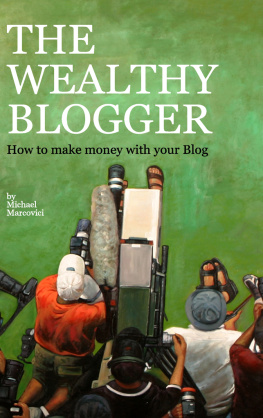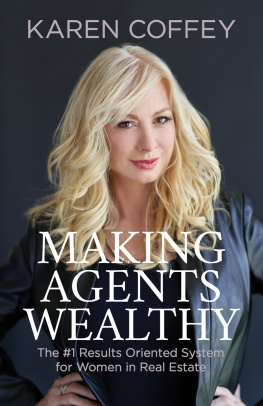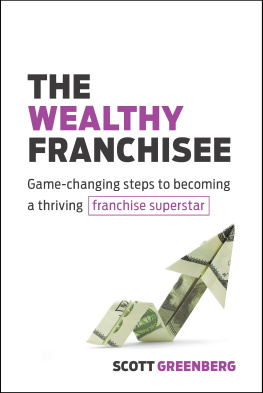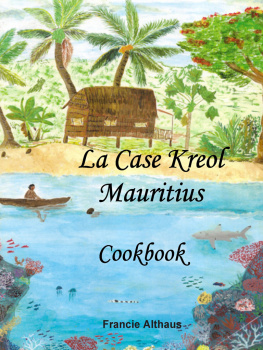Francie Ostrower - Why the Wealthy Give
Here you can read online Francie Ostrower - Why the Wealthy Give full text of the book (entire story) in english for free. Download pdf and epub, get meaning, cover and reviews about this ebook. year: 2022, publisher: Princeton UP, genre: Politics. Description of the work, (preface) as well as reviews are available. Best literature library LitArk.com created for fans of good reading and offers a wide selection of genres:
Romance novel
Science fiction
Adventure
Detective
Science
History
Home and family
Prose
Art
Politics
Computer
Non-fiction
Religion
Business
Children
Humor
Choose a favorite category and find really read worthwhile books. Enjoy immersion in the world of imagination, feel the emotions of the characters or learn something new for yourself, make an fascinating discovery.
- Book:Why the Wealthy Give
- Author:
- Publisher:Princeton UP
- Genre:
- Year:2022
- Rating:3 / 5
- Favourites:Add to favourites
- Your mark:
- 60
- 1
- 2
- 3
- 4
- 5
Why the Wealthy Give: summary, description and annotation
We offer to read an annotation, description, summary or preface (depends on what the author of the book "Why the Wealthy Give" wrote himself). If you haven't found the necessary information about the book — write in the comments, we will try to find it.
Why the Wealthy Give — read online for free the complete book (whole text) full work
Below is the text of the book, divided by pages. System saving the place of the last page read, allows you to conveniently read the book "Why the Wealthy Give" online for free, without having to search again every time where you left off. Put a bookmark, and you can go to the page where you finished reading at any time.
Font size:
Interval:
Bookmark:

WHY THE WEALTHY GIVE
WHY THE WEALTHY GIVE
THE CULTURE OF
ELITE PHILANTHROPY
FRANCIE OSTROWER
PRINCETON UNIVERSITY PRESS
PRINCETON, NEW JERSEY
Copyright 1995 by Princeton University Press
Published by Princeton University Press, 41 William Street,
Princeton, New Jersey 08540
In the United Kingdom: Princeton University Press, Chichester,
West Sussex
All Rights Reserved
Ostrower, Francie.
Why the wealthy give : the culture of elite philanthrophy /
Francie Ostrower.
p. cm.
Includes bibliographical references (p. ) and index.
ISBN 0-691-04434-1
ISBN 0-691-01588-0 (pbk.)
1. PhilanthropistsNew York City (N.Y.) 2. Charities
New York City (N.Y.) 3. Voluntarism-New York City (N.Y.)
4. Elite (Social sciences)New York City (N.Y.) I. Title
HV99.N59085 1995 361.7'4dc20 95-2854
eISBN: 978-1-400-82185-3
R0
To my father, with thanks
TABLES
ACKNOWLEDGMENTS
I FIRST started the research for this book as a doctoral student, and I remain deeply indebted to Juan J. Linz and Paul J. DiMaggio for all the assistance they so generously provided as I formulated, carried out, and first synthesized my study. I have benefited greatly as well from Paul DiMaggios ongoing suggestions as I revised and reworked the study into this book. I wish to extend my sincerest thanks to Joseph Galaskiewicz and Jerome Himmelstein, who read the book in its entirety, and whose comments proved most valuable in making the final revisions. I am grateful for comments on individual chapters by Peter V. Marsden and Andrew Walder and for the assistance on statistical matters provided by Tony Tam on numerous occasions. My thanks as well to Mary Murrell, my editor, for all her assistance. For their support and encouragement throughout, I thank Nancy Nasr and Roland Ostrower.
I greatly appreciate all the help I received from the Yale University Program on Non-Profit Organizations. I am thankful as well to John G. Simon and Bradford Gray for their encouragement, support, and assistance over the course of the study, and for many informative and enjoyable conversations about philanthropy and nonprofit organizations.
For providing financial assistance that was invaluable in carrying out this study, I am grateful to the Yale University Program on Non-Profit Organizations, the New York Community Trust (for a grant to the Program on Non-Profit Organizations in support of my work), the Center for the Study of Philanthropy of the City University of New York (for a Center for the Study of Philanthropy Research Award), and to Yale University (for a John F. Enders Research Assistance Grant). I am thankful as well to Yale University for the fellowship that enabled me to attend graduate school. A semesters junior faculty Presidential leave of absence from Harvard University was invaluable in bringing the project to completion, and is gratefully acknowledged.
I also wish to express my gratitude for the assistance received at Yale University from the staffs of the Computer Center, the Social Science Library, the Social Science Data Archive, and the Social Sciences Statistical Laboratory, who were extremely helpful in obtaining and using relevant materials.
My deeply felt thanks go to the ninety-nine donors who so generously took time from very busy schedules to speak with me about their philanthropic attitudes and practices. Their thoughtful comments and willingness to speak in such depth made the hours spent gathering the data for this study very interesting and enjoyable ones. I am also very grateful to the nonprofit institutions that generously provided me with information for this study. My sincere thanks as well to the various fundraisers, nonprofit executives, and other individuals knowledgeable about the nonprofit world who spoke with me during the course of this research.
In closing, I would also like to express my general thanks to all, too numerous to name, who have shared their comments and questions, at talks or in conversations, over the years.
WHY THE WEALTHY GIVE
INTRODUCTION
S IGNS OF the philanthropic involvements of the wealthy are not hard to find. Buildings, programs, and even entire institutions are named for wealthy benefactors. The playbills of many performing arts organizations offer long lists of their donors. In museums, placards next to works of art identify the men and women by whom they were donated. Hospital wings and endowed university chairs carry the names of large contributors. The sources of elite philanthropy, however, are less visible than its results. The purpose of this book is to explore those sources and to examine the place of philanthropy within elite groups. The result is an account of an institution that, I found, plays a central and defining role in upper-class culture. It is also an account of how this institution has been adapted, and has thus endured, in the face of changing circumstances.
This book is based on a series of personal interviews that I conducted with ninety-nine wealthy donors who live and/or work in the New York City area. Eighty-eight of these men and women were selected through a formal sampling procedure described later in this chapter. Eleven additional individuals were interviewed as part of a pretest. These donors are at the center of this book, but I will also consider organizational data that I compiled on boards of directors and donations to major New York City nonprofit organizations. Taken together, these materials provide an understanding of the character, sources, and consequences of elite philanthropy among a set of affluent donors in a major American city.
The following pages of this Introduction present the definitions, background, methodology, and context for the particular themes and arguments of the book. These themes are first introduced individually in their particular context. At the end of the Introduction, the multiple themes are drawn together and presented in an overview and outline of the book as a whole. Although the formal analysis is reserved for remaining chapters, this Introduction will also present preliminary material from the interviews. The purpose in doing so is to convey to the reader both a sense of the normative character of philanthropy among these donors as well as how they were drawn into the philanthropic world. This general and substantive background sets the stage for the more specific and specialized discussions to come.
THE SCOPE OF PHILANTHROPY
Philanthropy is often used interchangeably with charity, but the two differ in important ways. Charity is specifically directed toward the poor, and often focuses on the relief of severe and immediate needs. Philanthropy is a broader concept, which includes charity but also encompasses the wider range of private giving for public purposes. In short, as one woman I interviewed put it, philanthropy covers the whole range of whats acutely necessary to what is desirable.
This understanding of philanthropy was commonly expressed by donors, including those who did make large charitable gifts. For instance, one such man said,
This is not a hard-and-fast antiseptic view, but basically we pay heavy taxes, and I have, and I feel that should do most of the work that I can do towards relieving poverty problems, although I respond to those as well.... But basically, where the individual can make the biggest impact is in the quality of lifethings that are hard for the government to do or justify, but that would have a big impact on everybodys feeling of well-being.
In a comment that expresses a similar view and also highlights the organizational nature of contemporary philanthropy, another donor observed,
Font size:
Interval:
Bookmark:
Similar books «Why the Wealthy Give»
Look at similar books to Why the Wealthy Give. We have selected literature similar in name and meaning in the hope of providing readers with more options to find new, interesting, not yet read works.
Discussion, reviews of the book Why the Wealthy Give and just readers' own opinions. Leave your comments, write what you think about the work, its meaning or the main characters. Specify what exactly you liked and what you didn't like, and why you think so.












